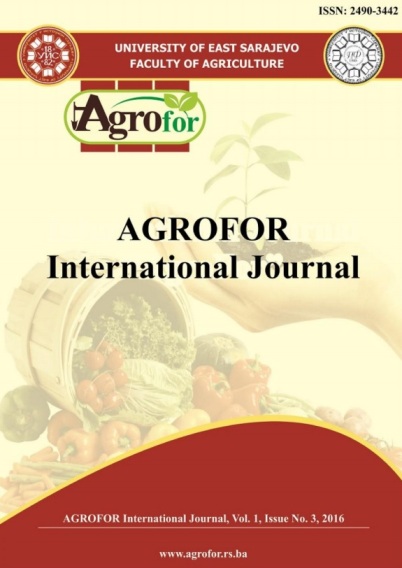GROUND COVER VEGETATION DEVELOPMENT IN HYLOCOMIOSA FOREST SITE TYPE AFTER THE CLEARCUT
DOI:
https://doi.org/10.7251/AGRENG1603032IAbstract
Most of the ground cover vegetation descriptions given for characteristic of certain
forest site types are made for mature forest stands. However the site type
estimation for the practical forest inventory needs knowledge about the vegetation
in every age class of forest. The clearcut as an artificial forest disturbance causes
dramatically changes in plant community. Especially fast changes proceed during
the first years after the clearcut. Due to increase of temperature and nutrient
availability there proceeds several processes causing significant changes in ground
cover vegetation. In 2015 a research was started to clarify the changes in ground
cover vegetation in Hylocomiosa forest site type. This forest site type is most
abundant in Latvian forests taking around 22%. The dominant tree species in
Hylocomiosa is Scots pine (Pinus sylvestris L.) although the silver birch (Betula
pendula Roth), Norway spruce (Picea abies (L.) Karsten) and aspen (Populus
tremula L.) can form a tree stand there. The chronosequence method was used by
providing the inventory at 5 tree stands dominated by pine. Six sample plots at
each forest stand with size of 10 m2 were established. The point-square method by
using of 1mm thick and 1m high metallic needle was used for registration of plants
at each square of sample plot. The inventory showed significant changes of species
composition and projective cover of moss species and caulescent plants. The
results of calculation of the Ellenberg’s ecological values and Tschekanovsky
coefficient suggest of appearance of plants with another attitude to the ecological
factors.

